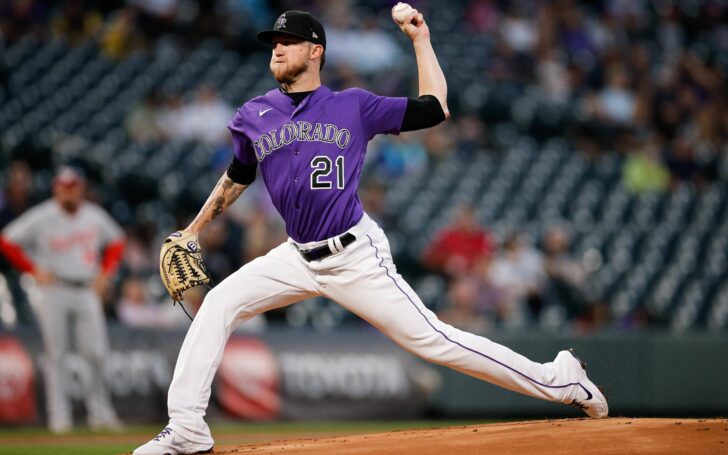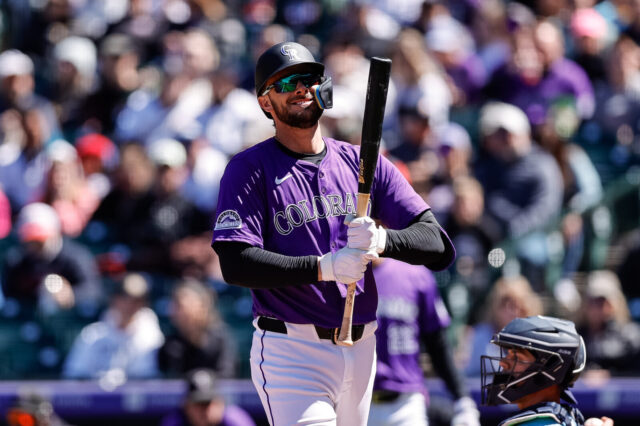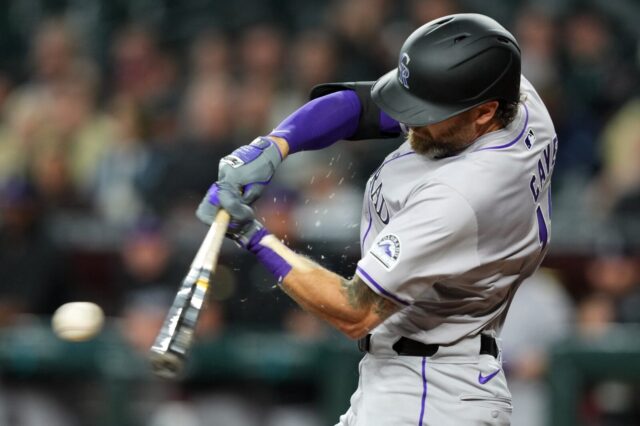The 2021 season was truly one of the most epically bizarre in the history of the Colorado Rockies.
And that, my friends, is saying something.
It will mostly be remembered for things that happened far away from the baseball diamond. The Nolan Arenado saga finally blew up when he demanded a trade and the organization acquiesced.
While the anger over that and the ensuing terribly handled press conference, the conversation almost immediately segued into concerns over Trevor Story and an assortment of front office departures that ultimately even included GM Jeff Bridich.
The disgust over the way this era of Rockies baseball ended was palpable for anyone who spent every day around the team.
There was a pox in the air, everything felt bad, and more than a few fans decided to turn it all off and disengage completely.
Understandable.
But if you did that, you might have missed that, on the field, the Rockies were nowhere near the disaster they were off of it. Nor were they anywhere near as terrible as most pundits and data systems predicted.
For those who didn’t watch, it would be tempting to chalk this all up to some random luck or even other teams simply being more successful at tanking than Colorado.
Looking at the numbers tells an entirely different story though.
The Rockies went 74-87 last year, hardly something to write home about, but it is something you can build on if it is real. So how real was it? Well, it’s kinda hard to tell.
One of the best indications of good or bad luck is the Pythagorean method which takes a look at overall runs scored and overall runs allowed and tends to come up with a very accurate picture for how many games a ballclub should have won.
Colorado’s Pythag actually shows they got shorted by a game and should have gone 75-86, which doesn’t tell us much beyond the fact that they certainly didn’t experience an overabundance of luck to get to 74.
There are also a number of other intriguing stats that suggest the Rox actually could have been a lot better despite their lack of star power.
In games started by German Marquez, Kyle Freeland, and Austin Gomber, they went 43-35.
Add in Antonio Senzatela and the record is 54-52. That is their top four for this year.
Keep in mind, of course, that these records include one of the worst lineups and arguably the worst bullpen in the National League.
In other words, the lack of starting pitching depth cost them a lot. Can Chad Kuhl, Peter Lambert, and Ryan Rolison improve upon the production of Chi Chi Gonzalez, Antonio Santos, and a smattering of others? We will see.
It would also help those starters if the bullpen held up their end of the bargain. Colorado’s ‘pen blew 30 saves last season.
Now you can’t just chop that in half in one offseason and expect to be at the top of MLB, especially considering they’ve only added one player to the mix. But even cutting into it by five games would have put the Rockies right around .500 without improving anywhere else.
Another odd wrinkle to last season was how capable the Rockies were against every team in baseball that didn’t win 100 games.
Unfortunately for them, two of those teams happen to play in their division and so they have an inordinate number of games against them.
Yes, Colorado went 10-28 against the Los Angeles Dodgers and San Francisco Giants in 2021 and 64-59 against everybody else.
Those teams aren’t going anywhere and this dynamic (like our next category) is likely to balance out a bit naturally. But their ability to not just hang with, but to best everyone but baseball’s behemoths shows another sign that they might be a few steps closer than we previously thought.
Mind you, they are not a few steps closer to winning the division. That’s not going to happen. But they are a lot closer to a 12-team postseason if they can improve on some of these splits.
Of course, the split that grabbed the most headlines was their truly preposterous home/road numbers whereby the Rox managed a dominant 48-33 record at home and an abysmal 26-54 on the road.
So one the one hand, the path to being better can seem a bit obvious.
Be a little bit better against the beasts of your division. Don’t blow so many games at the end. Be serviceable on the road. Don’t lay total eggs at the bottom of the rotation.
Of course, we all know it isn’t quite that simple. Every season brings a new set of unique challenges. They could solve several of these issues only to see some new ones pop up.
But the path is there. A new leader in the front office is there. A new leader in the clubhouse is there.
And this season isn’t likely to be quite as epically bizarre as the last one.
Probably.



